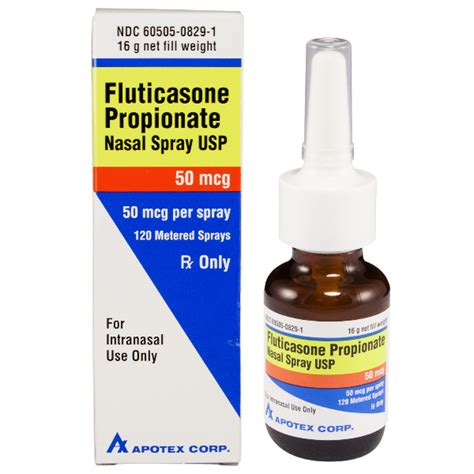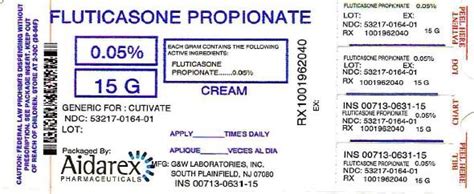Intro
Discover 5 uses of Fluticasone Propionate, a potent topical corticosteroid, for skin allergies, eczema, and respiratory issues, including asthma and rhinitis, with benefits like reduced inflammation and itching.
The importance of understanding the various uses of medications cannot be overstated, especially when it comes to corticosteroids like fluticasone propionate. This medication has been widely used for its anti-inflammatory properties, helping to alleviate symptoms associated with a range of conditions. From skin disorders to respiratory issues, fluticasone propionate has proven to be a versatile and effective treatment option. In this article, we will delve into the 5 primary uses of fluticasone propionate, exploring its benefits, working mechanisms, and practical applications.
The application of fluticasone propionate is not limited to a single condition; rather, it has been found useful in managing symptoms of several diseases. Its ability to reduce inflammation and suppress the immune system makes it an ideal candidate for treating conditions characterized by excessive immune responses. Whether it's applied topically to the skin or inhaled into the lungs, fluticasone propionate has shown remarkable efficacy in improving the quality of life for patients suffering from these conditions.
One of the key reasons fluticasone propionate stands out among other corticosteroids is its localized action, which minimizes systemic side effects. This is particularly beneficial for patients who require long-term treatment, as it reduces the risk of adverse effects associated with prolonged corticosteroid use. Moreover, its potency and rapid onset of action make it a preferred choice for both dermatological and respiratory conditions. With its broad range of applications and favorable safety profile, it's no wonder that fluticasone propionate has become a staple in the treatment of various inflammatory disorders.
Introduction to Fluticasone Propionate

Fluticasone propionate is a synthetic corticosteroid with potent anti-inflammatory activity. It is designed to mimic the effects of cortisol, a naturally occurring steroid hormone produced by the adrenal gland. By binding to specific receptors in the body, fluticasone propionate inhibits the production of inflammatory mediators, thereby reducing swelling, redness, and pain associated with inflammation. This mechanism of action underlies its effectiveness in treating a variety of conditions, from atopic dermatitis and psoriasis to asthma and allergic rhinitis.
Pharmacological Properties
The pharmacological properties of fluticasone propionate, including its high potency and localized action, contribute to its therapeutic efficacy. When administered topically, it is poorly absorbed systemically, which reduces the risk of side effects. In contrast, inhaled fluticasone propionate is absorbed into the bloodstream but is rapidly metabolized by the liver, minimizing systemic exposure. These characteristics make fluticasone propionate an attractive option for patients requiring corticosteroid therapy.Uses of Fluticasone Propionate

1. Atopic Dermatitis (Eczema)
Fluticasone propionate is commonly used to treat atopic dermatitis, a chronic skin condition characterized by dry, itchy, and inflamed skin. Topical application of fluticasone propionate creams or ointments helps to reduce inflammation, prevent itching, and promote healing of the skin. Its efficacy in managing symptoms of atopic dermatitis has been well-documented, making it a first-line treatment for many patients.
2. Psoriasis
Psoriasis, an autoimmune condition that speeds up the life cycle of skin cells, leading to thick, scaly patches on the skin, is another condition where fluticasone propionate finds application. Topical corticosteroids like fluticasone propionate are effective in reducing the inflammation and slowing down the growth of skin cells, thereby alleviating symptoms of psoriasis.
3. Asthma
Inhaled fluticasone propionate is used in the management of asthma, a chronic inflammatory disease of the airways. It helps to reduce airway inflammation, decrease the frequency of asthma attacks, and improve lung function. By controlling inflammation, fluticasone propionate prevents the narrowing of airways and reduces symptoms such as wheezing, coughing, and shortness of breath.
4. Allergic Rhinitis
Fluticasone propionate nasal sprays are used to treat allergic rhinitis, a condition characterized by inflammation of the nasal passages due to allergic reactions. It reduces nasal congestion, runny nose, sneezing, and itching, providing relief from symptoms of allergic rhinitis.
5. Other Skin Conditions
Besides atopic dermatitis and psoriasis, fluticasone propionate is also used to treat other skin conditions such as lichen planus, discoid lupus erythematosus, and seborrheic dermatitis. Its anti-inflammatory properties make it an effective treatment option for reducing inflammation and promoting healing in these conditions.
Benefits and Side Effects
While fluticasone propionate is generally well-tolerated, it is not without side effects. Common side effects include skin thinning, easy bruising, and increased risk of skin infections with topical use, and throat irritation, hoarseness, and oral thrush with inhaled forms. However, the benefits of using fluticasone propionate, including its effectiveness in managing symptoms and improving quality of life, often outweigh the risks for many patients.Conclusion and Future Perspectives

In conclusion, fluticasone propionate is a versatile medication with a wide range of applications, from dermatological conditions like atopic dermatitis and psoriasis to respiratory diseases such as asthma and allergic rhinitis. Its localized action and potent anti-inflammatory effects make it a preferred treatment option for many patients. As research continues to uncover the full potential of corticosteroids like fluticasone propionate, it is likely that new applications and formulations will emerge, further expanding the role of this medication in managing inflammatory disorders.
We invite you to share your thoughts and experiences with fluticasone propionate in the comments below. Whether you're a healthcare professional or a patient who has used this medication, your insights can help others better understand its benefits and challenges. Feel free to ask questions or seek advice from our community, and don't forget to share this article with anyone who might find it helpful.
What is fluticasone propionate used for?
+Fluticasone propionate is used to treat a variety of conditions including atopic dermatitis, psoriasis, asthma, and allergic rhinitis.
How does fluticasone propionate work?
+Fluticasone propionate works by binding to specific receptors in the body, inhibiting the production of inflammatory mediators, and thereby reducing inflammation.
What are the common side effects of fluticasone propionate?
+Common side effects include skin thinning, easy bruising, and increased risk of skin infections with topical use, and throat irritation, hoarseness, and oral thrush with inhaled forms.
